Frequently asked questions.
FAQs
-
SERES cultivates youth leaders to build more just and sustainable communities in Central America. Our goal is to develop 21st century leadership and sustainability skills in youth leaders from rural and indigenous communities for them to drive the solutions to solve the most pressing needs.
-
In Guatemala and El Salvador, more than 65% of the population is under 30 years of age. Development has continually bypassed this sector of society, yet SERES sees this group as an untapped force with the potential to transform an entire region.
After decades of civil war, where thousands of student leaders, youth and defenders have disappeared, it was understood that silence was the best bet to survive. These post-war youth in rural communities have grown up without a voice, with little interest and participation in important processes for the well-being of the region. If this generation continues on this same path, our predictable future will be a difficult one to bear. However, in a region where it is mostly young, there is still hope for a leadership different from the one we know and that has brought us here.
-
SERES seeks to foster active citizenship and inclusive leadership, harnessing the potential of youth growth while also addressing the issues of climate mitigation, adaptation, and resilience.
The difference in our approach is that we don't come up with a solution, but rather use our process to help people find their own solutions that will eventually lead to systemic change.
Our approach is that systemic transformation is achieved through the development of leadership skills and a sense of agency, the project (community action plans), and a peer-driven network with active multipliers and catalysts.
-
Over the past 14 years, we have reached 7,000 youth from rural and indigenous communities in Guatemala and El Salvador developing leadership and sustainability skills. The youth have increased their knowledge and awareness towards sociopolitical, environmental and economic issues, created over 500 community action projects that have impacted more than 100,000 people in 365 communities.
More young people are involved in the public, private and civil society sectors. 100% have applied new leadership skills and abilities. 96% of these young people are part of a youth group or civil group, increasing the participation of the youth community in issues that interest and concern them.
There has been a more inclusive community voice where 92% of young people have assumed an informal leadership role in the community and 73% have held an elected position in their community.
-
We have a monitoring and evaluation system that includes quantitative and qualitative data analysis. We use a participant database to track program beneficiaries recording basic participant data, program/activity history and civic participation as well as information on community action plans. Evaluation assessments measuring relevance, effectiveness and impact are conducted at the end of each training along with interviews and written narratives, and field visits by youth ambassadors to target municipalities are undertaken every two months. In addition to this monitoring and evaluation, we have researched additional appropriate and reliable indicators that will allow us to measure the longer-term social impact and societal transformation.
-
We carry out external financial audits every year to ensure transparency and accountability in our administration of funds. Our finance and accounting staff has over 15 years of experience in the nonprofit sector in Guatemala, and we maintain our procedures relevant and up to date with current legislation, and integrate financial systems that support our operations like Quickbooks, Expensify, and others, to be more transparent and efficient.
-
You can have access to our annual reports here.
-
The organization is co-led by two Guatemalan women and a team of 12 people made up mostly of young professionals from Central America, with representation from each of the regions where we work, and 70% of our staff are graduates of our programs. Within our board of directors, we include two youth representatives who are SERES students, selected each year by the other students and a general assembly.
Annually we hold a general meeting with our youth members where we present any changes on our strategies to receive feedback, these strategies are constructed by listening to the network in our followup visits, during quarterly ambassador meetings, and at any point of contact.
We believe that our team has a strong knowledge base of the communities we serve, and are in constant contact with the SERES youth network, their peers and stakeholders, to provide ongoing feedback about the needs and strategies proposed.
-
We work with young people from 15 to 30 years of age mostly from rural and semi-urban areas in the strategic regions where we operate. These include Escuintla, Tecpán Guatemala and San Miguel Uspantán communities in Guatemala, and Jujutla, Guaymango and Suchitoto communities in El Salvador.
We promote our programs through our current network of participants, alumni and SERES Ambassadors, partnered with local collectives and organizations, and local schools.
-
You can become a volunteer - we have specific projects where we are always looking for support, advice and knowledge.
You can help 20 youth start their leadership journey with $500. Join our community of friends by donating here.
You can become a SERES Champion if you feel you can connect us to your global community, another partner, and be an advocate for youth leaders and their actions towards transformation.
